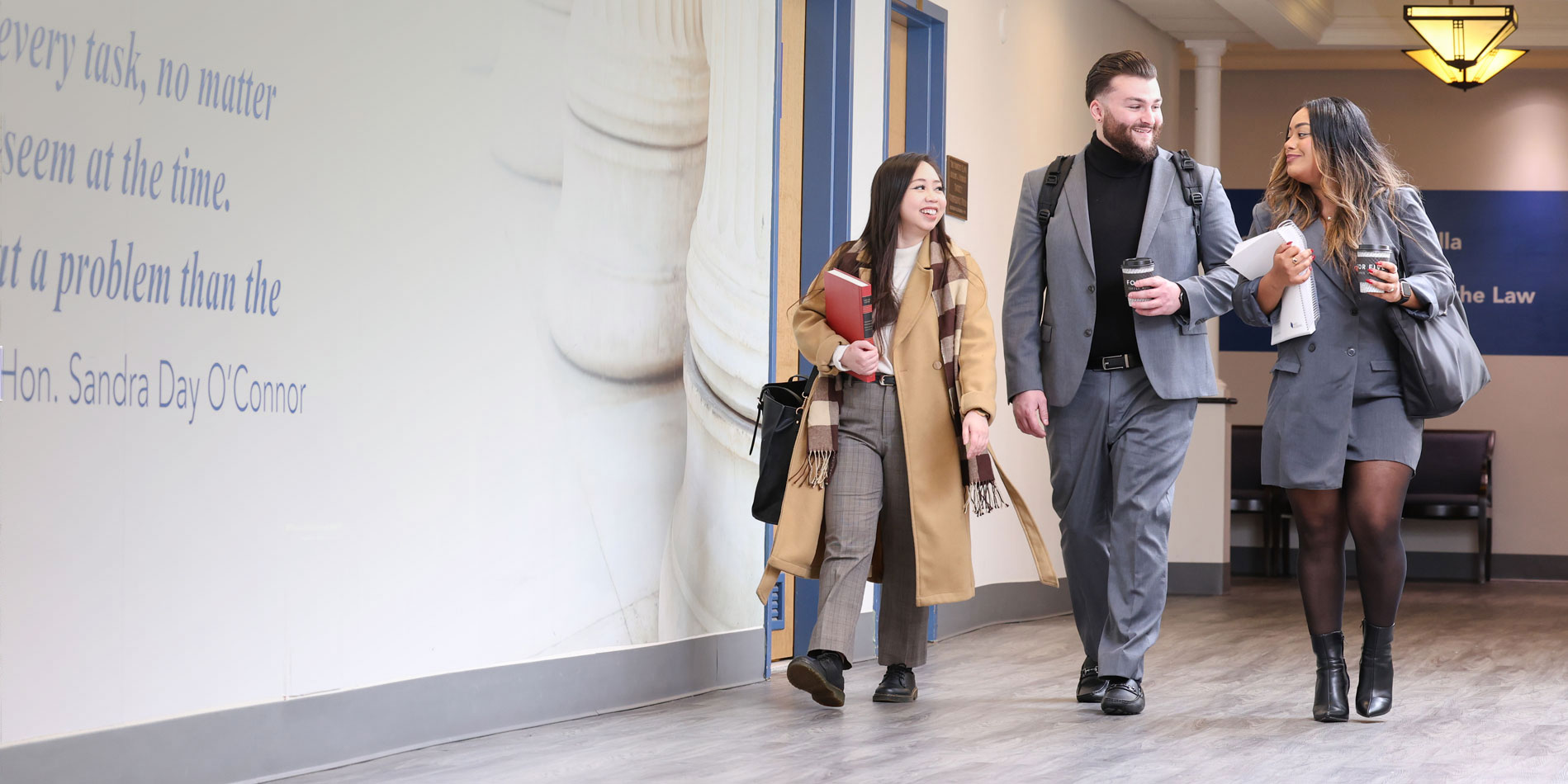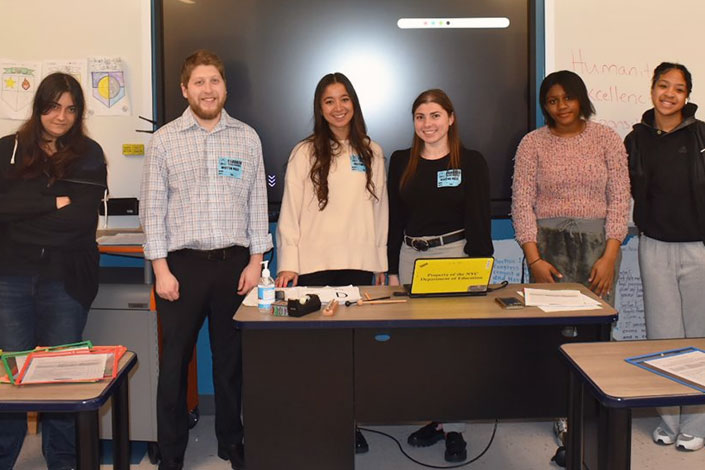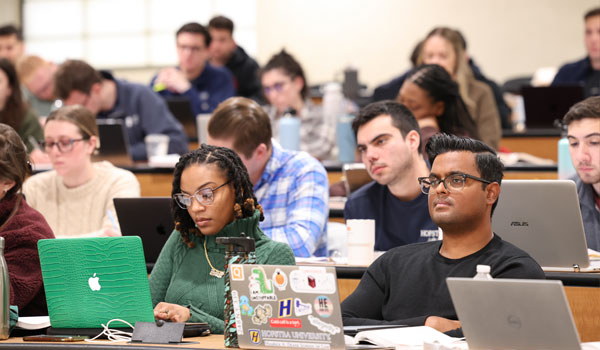

#48 Go-To Law School Nationally
Law.com’s ranking of law schools with the highest percentage of 2023 JD graduates that are hired as associates at the nation’s largest 100 law firms.
Academics
Everything is Possible
At Hofstra Law, we will provide you with an education rich in both the theory and skills needed for you to thrive in any career.

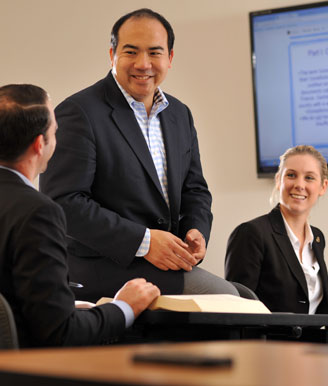
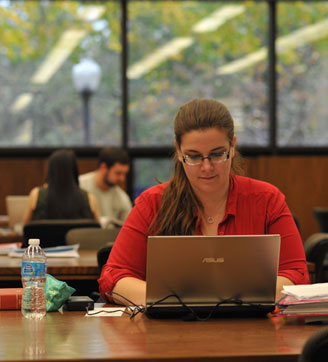
Edge Ahead: 1L Advantage Program
July 8, 2024 to July 25, 2024
Edge Ahead is open to anyone planning to attend law school in the next two years. The three-week program allows you to gain exposure to important first-year courses — Contracts and Legal Writing — and to develop the skills you need to succeed in law school.

Top Links
Diversity Matters to Us
We believe that having a community of differing perspectives and backgrounds — income, geographic, ethnic and other — enhance our intellectual and social life at the Law School. We have developed unique programming to support our diversity efforts and our diversity student organizations.

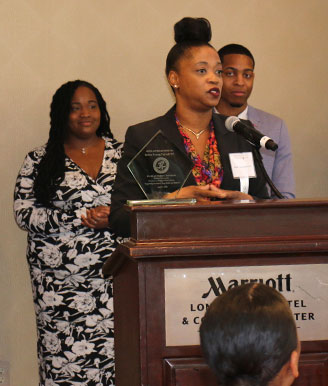


90%
Class of 2022, the Law School reported its highest job placement numbers in the last decade for full-time, long-term bar-passage-required and JD-advantage positions 10 months after graduation.
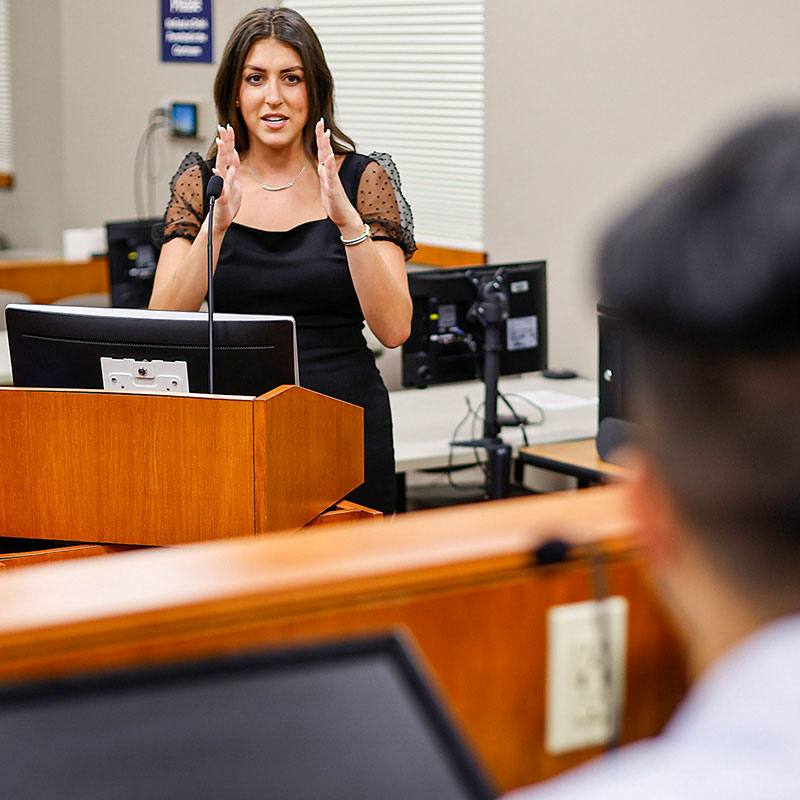
Top 25
“Most Innovative Law Schools”
preLaw Magazine

63rd
Nationally for Scholarly Impact
The Latest
For the latest news from Hofstra Law, visit lawnews.hofstra.edu.
There’s something for everyone at Hofstra Law.
Community
Info For
Academics
Centers & Institutes
Our centers foster research, education, and action on critical issues facing today’s society.
Student Life
Life at Hofstra Law
Situated on the 244-acre Hofstra University campus, law students have access to the resources available throughout the Hofstra community.
